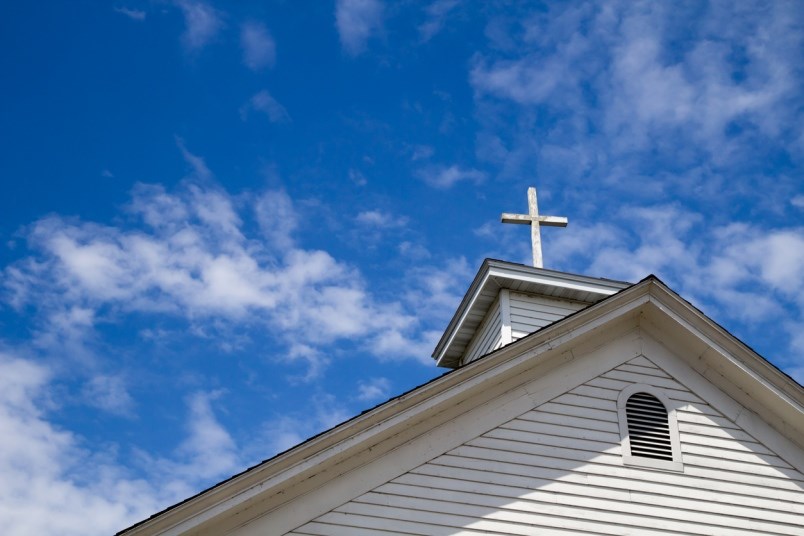Throughout the course of this century, British Columbia has been the most irreligious province in Canada. In the 2001 national census, 35.1 per cent of British Columbians claimed to have no religion when they filed their forms. By 2011, the proportion rose significantly to 44.1 per cent.
We will need to wait at least a couple of years for a new official assessment from Statistics Canada. However, with Easter around the corner, it is a good time to take a look at the state of religion in British Columbia.
This month, Research Co. asked British Columbians about the existence or non-existence of God, their attendance to religious services and who or what they turn to when they face a time of need, concern or reflection.
Many British Columbians believe in a higher power. Practically two in five of the province’s residents (39 per cent) are convinced that God exists, while 22 per cent tend to believe that God exists. This means that 61 per cent of British Columbians can be described as “strong” or “moderate” believers.
Women are more likely to be convinced that God exists (43 per cent) than men (35 per cent). On a regional basis, strong belief in God is highest in Northern B.C. (50 per cent) and Southern B.C. (48 per cent) but drops markedly in Vancouver Island (36 per cent) and the Lower Mainland (34 per cent).
About three in 10 British Columbians (29 per cent) are either convinced that God does not exist (16 per cent) or tend to believe that God does not exist (13 per cent). So, by a two-to-one margin, British Columbians are more likely to say there is a God.
In spite of this high number of devotees, going to church every week is something that a tiny minority is currently doing. Two thirds of British Columbians (67 per cent) say they never attend religious services, other than weddings, baptisms or funerals.
The proportion of residents who choose not to participate in religious services is highest (70 per cent) among B.C. millennials (aged 18 to 34) and falls slightly (68 per cent) among those in generation X (ages 35 to 54). Among baby boomers (55 and over) it is 59 per cent.
Only three per cent of British Columbians say they attend services at least once a week, including five per cent of those aged 55 and over and seven per cent of those who reside in Southern B.C.
Setting aside their views on the existence of a higher power or creator, British Columbians are finding different ways to deal with the big questions of life than their predecessors. The notion of a priest or pastor playing the role of a de facto analyst and counsellor is going out of style. The proportion of British Columbians who either confessed or sought advice from a religious figure is extremely low (two per cent, increasing to five per cent among those aged 55 and over).
There are larger proportions of British Columbians who are bouncing ideas off non-religious figures. More than one in 10 (11 per cent) visited a mental health professional, such as a psychiatrist or a psychologist and seven per cent visited a “life coach” to help identify personal goals.
Visits to mental health professionals peak with millennials and generation X (14 per cent for each group), while “life coaching” is slightly more popular among those aged 18 to 34 (10 per cent). In contrast, baby boomers are equally likely to have visited a mental health professional, a “life coach” or a religious figure to seek advice.
When it comes to solace, meditation has overtaken prayer as a go-to tool for weary British Columbians. While one in four residents (24 per cent) say they prayed to God over the past 12 months (even though, as we have outlined, 61 per cent are strong or moderate believers), the proportion is slightly higher for meditation (27 per cent).
Those in the youngest adult age group are more likely to have meditated than prayed over the last year (31 per cent to 23 per cent), and a similar gap is observed with generation X (26 per cent to 21 per cent). British Columbians aged 55 and over are still favouring prayer (29 per cent) but meditation is closing in (26 per cent).
The survey shows that British Columbians are particularly eclectic and fussy when pondering spirituality. Most residents believe or tend to believe in God, but few make their way to the pews unless someone is getting married, was born or has died.
In addition, only one out of every 50 residents are still seeking advice from religious figures, with more solutions being sought from mental health professionals and “life coaches.” British Columbians appear to be losing their “organized” religion, but not necessarily their faith.
Mario Canseco is president of Research Co.




